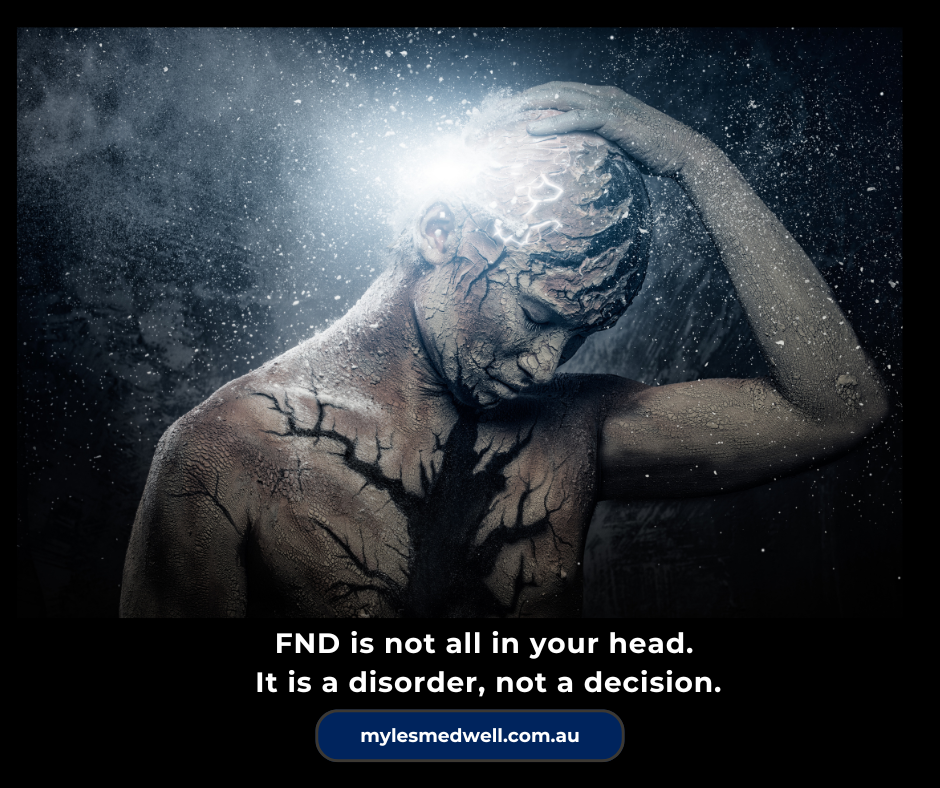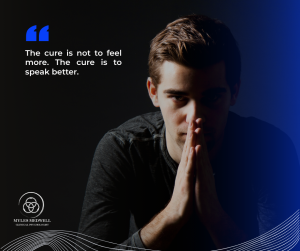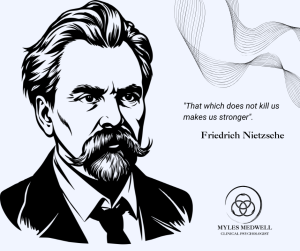Psychoanalytic Reflections on FND in Melbourne
Functional Neurological Disorder (FND), formerly understood in the language of “conversion disorder”, occupies a fraught space between neurology and psychiatry. Patients often feel disoriented, dismissed, and betrayed by their own bodies. The symptomatology which includes seizures, paralysis, loss of speech, tremors, and even blindness, recalls not only contemporary descriptions but the very origins of psychoanalysis itself, when Freud and Breuer confronted the “hysterical attacks” of their patients.
If hysteria was the inaugural disorder of psychoanalysis, FND represents its contemporary counterpart. Both speak to the drama of the body inscribed by language and desire, where an unconscious truth insists but cannot be spoken directly. As Jamieson Webster has argued, conversion disorder is not merely a relic of fin-de-siècle Vienna but an ongoing challenge to medical discourse, one that unsettles the distinction between organic illness and psychological causation. The body becomes the stage upon which conflict, repression, and unassimilated trauma are performed.
What is Functional Neurological Disorder?
Unlike conditions grounded in structural brain damage, FND manifests as a disruption in the functioning of the nervous system. Neurologically, the brain sends signals that do not align with the body’s intention. Psychoanalytically, however, one must ask: what knowledge does the symptom itself contain?

Freud famously called the hysterical symptom a compromise formation, at once concealing and revealing. The symptom is not “imaginary,” nor is it “all in the head.” It is real, in the Lacanian sense – an eruption of what cannot be symbolised. A tremor, a paralysis, or a mutism may be the very form through which the unconscious insists: a truth that cannot be said otherwise.
Why Psychoanalysis Matters for FND
Multidisciplinary teams – including neurologists, physiotherapists, occupational therapists – play a valuable role in FND treatment. Yet psychoanalysis uniquely situates itself at the juncture where body and language meet. To listen to the symptom not as a mere malfunction but as an enunciation, a message without words, is to give dignity to what the body speaks.
Jamieson Webster reminds us that conversion cannot be “explained away” through simple cognitive restructuring. It resists the logic of mastery. Lacanian clinicians note that the symptom does not only cover over trauma but also sustains a relation to jouissance — a paradoxical enjoyment inscribed in suffering. The analytic task is not symptom eradication, but to allow the subject to find another relation to this enjoyment, another way of living with or beyond it.
Orientations
While many clinics in Melbourne emphasise CBT or mindfulness strategies, a psychoanalytic treatment of FND privileges listening to the singularity of the patient. This may involve:
- Tracing the symptom’s history: Not only medical history, but how the symptom emerges in relation to speech, family structures, and unconscious conflicts.
- Exploring the scene of trauma: Trauma is not always a discrete event, but often a structure of repetition, where what was unspeakable finds its way into the body.
- Working through transference: The analytic relationship becomes a space where the symptom’s meaning can be shifted, not through suggestion or correction, but through the subject’s own speech.
Rather than offering strategies for control, psychoanalysis offers a space for the subject to situate themselves differently in relation to their symptom.
Why Private Psychoanalytic Treatment in Melbourne?
Public services for FND in Melbourne are scarce, with wait times that stretch beyond a year. For those suffering daily disability, such delays risk entrenching the symptom. In private practice, early intervention allows the analytic work to begin when the symptom is most alive, and when the patient’s demand for relief brings them to treatment.
Living with the Symptom, Beyond the Symptom
Recovery in the psychoanalytic sense does not mean the erasure of every symptom. Freud cautioned that the goal of analysis was not to remove all suffering, but to transform “hysterical misery into common unhappiness.” In modern terms, this means restoring agency, opening space for desire, and re-inscribing the body within the symbolic order of speech and relation.
Patients in analysis often report not only a reduction in symptom intensity but a shift in how they live with their bodies where they discover new capacities for work, love, and thought. What begins as a bewildering betrayal by the body can become a path of subjective transformation.

Taking the Next Step
If you or someone close to you is struggling with FND, a psychoanalytic approach offers more than strategies. It offers a listening that honours the symptom as meaningful, even in its opacity. In the analytic encounter, body and speech are given their dignity, and from this, new possibilities for living emerge.
About the Author: Myles Medwell is a Clinical Psychologist (Registrar) in Melbourne, based at 53 Erin Street, Richmond VIC 3121. He has experience in treating Functional Neurological Disorder, trauma, and complex mental health presentations. His approach blends evidence-based therapies with a depth-oriented psychoanalytic perspective, offering clients both practical tools and deeper understanding on their journey to recovery. For those searching for a psychologist in Richmond Melbourne, Myles provides compassionate, evidence-based care tailored to the needs of each client.
Contact Myles through this link.
If you want to learn more about FND, check out this website of FND Hope https://fndhope.org/




